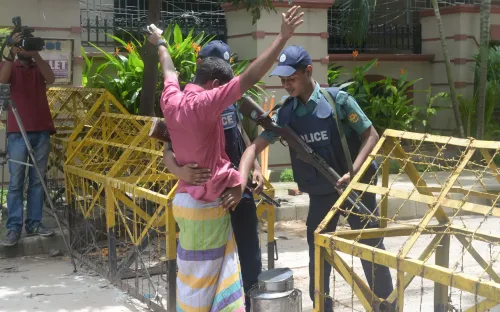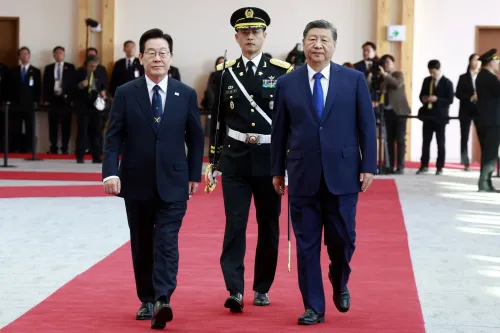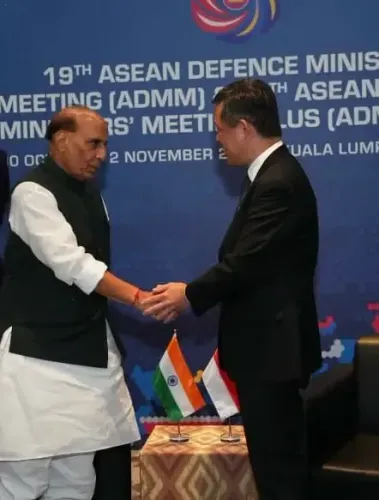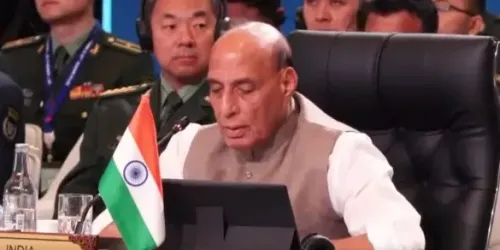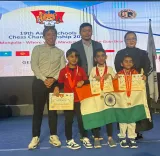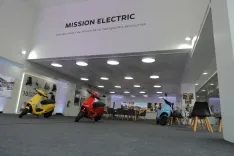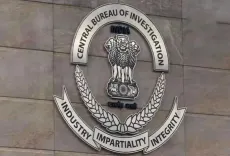Why Was India's Candidate for the Law of Sea Tribunal Honoured?
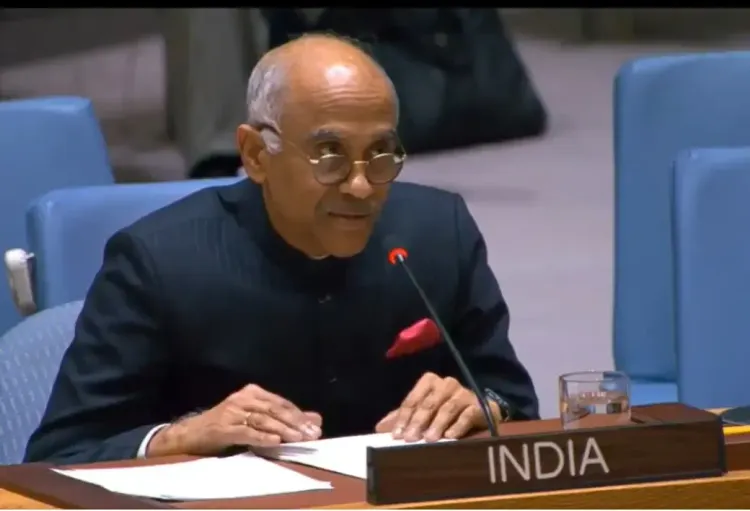
Synopsis
Key Takeaways
- Bimal Patel represents India in the upcoming ITLOS elections.
- The event coincided with International Law Week at the UN.
- Indian MPs engaged in discussions on critical global issues.
- India emphasizes its commitment to non-proliferation and peaceful nuclear technology.
- Collaboration with international bodies like UNDP and UNICEF is a priority for India.
United Nations, Oct 30 (NationPress) India's representative for the International Tribunal for the Law of the Sea (ITLOS), Bimal Patel, received accolades at a reception attended by a delegation of Members of Parliament, hosted by Permanent Representative P Harish.
The event took place on Wednesday at India's UN Mission, coinciding with the International Law Week at the UN, which Patel is participating in.
Patel is India's nominee for the upcoming elections scheduled for June next year, and the country has been vigorously supporting his candidacy.
On Thursday, he is set to address the topic of 'The Resilience of Conventional Multilateralism' alongside other candidates at a UN event sponsored by France.
As an international jurist, Patel is a current member of the UN's International Law Commission and serves as the vice chancellor of the Rashtriya Raksha University in Gujarat.
Neeru Chadha, who was elected to the ITLOS in 2016, will complete her nine-year term next year and is currently the tribunal's vice president.
The Members of Parliament, representing a broad spectrum of India's political landscape, are the second group from India to participate in the General Assembly session.
They have been advocating India's stance in addresses to the General Assembly and its various committees while engaging with UN officials and diplomats.
On Wednesday, they held discussions with Kanni Wignaraja, the UN's Assistant Secretary-General and Regional Director for Asia and the Pacific at UNDP.
India's Mission stated on X, “They had a fruitful discourse on India's enduring partnership with UNDP, emphasizing contributions towards India’s vision of a #ViksitBharat by 2047,” a goal set by Prime Minister Narendra Modi aimed at transforming India into a developed nation by the centenary of its Independence.
During a meeting with UNICEF officials, discussions centered around the agency's global initiatives, particularly its collaboration with India on children's health and well-being policies.
South Africa’s Permanent Representative, Mathu Joyini, met with the MPs to discuss issues pertinent to Global South nations, especially within the UN framework.
They also explored collaborative and multilateral initiatives between New Delhi and Pretoria, such as the IBSA platform, which includes Brazil for developmental projects.
Two MPs raised concerns regarding nuclear matters.
D Purandeswari, BJP MP from Andhra Pradesh, reaffirmed India’s unwavering support for the International Atomic Energy Agency (IAEA) in promoting the peaceful and secure applications of nuclear science and technology.
In her address at the General Assembly session discussing the IAEA’s report, she highlighted India’s advancements in nuclear power and research, particularly the development of indigenous CAR-T cell therapy, which enhances access to affordable cancer treatments.
Globally, she asserted that India backs the IAEA's initiatives through capacity-building, technical cooperation, and sharing expertise with partner nations.
In a briefing by the Security Council’s committee on nuclear non-proliferation, GK Vasan reiterated India’s commitment to global efforts aimed at preventing the proliferation of weapons of mass destruction.
This committee, named the 1540 Committee after the resolution that established it, also aims to hinder the spread of chemical and biological weapons.
Vasan, who is also the president of the Tamil Maanila Congress, stated that India maintains a robust legal and regulatory framework for implementing the provisions of Resolution 1540, aimed at preventing terrorist access to weapons of mass destruction.

